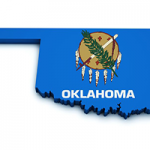Expungement
Facing a criminal record can feel like a barrier to moving forward, affecting job opportunities, housing, and peace of mind. Understanding the process of expungement in Oklahoma is crucial for those seeking to clear their records and regain control of their future. Learning how a Tulsa expungement attorney can guide you through the legal requirements and help protect your rights is an important first step toward a fresh start.
When legal challenges arise, having experienced counsel makes a difference. The Tulsa attorney team at Wirth Law Office is equipped to assess your case and provide clear advice on expungement options under Oklahoma law. If you need legal help, call Wirth Law Office at (918) 879-1681 to discuss how to begin the expungement process and work toward a more secure future.
Are All of Your Past Charges Public Domain?
 Discovering how to access someone else's criminal record in Oklahoma is simpler than one might think. Although sealed or expunged records remain out of reach, most public criminal records are accessible through the Oklahoma Supreme Court Network at oscn.net. By visiting the case search section and inputting relevant details such as the individual's first and last name, users can sift through cases across all counties. However, caution is advised, as common names might yield numerous unrelated results. Additional identifiers, like middle names or birth dates, can aid in narrowing the search to ensure accuracy in identifying the correct person.
Read more »
Discovering how to access someone else's criminal record in Oklahoma is simpler than one might think. Although sealed or expunged records remain out of reach, most public criminal records are accessible through the Oklahoma Supreme Court Network at oscn.net. By visiting the case search section and inputting relevant details such as the individual's first and last name, users can sift through cases across all counties. However, caution is advised, as common names might yield numerous unrelated results. Additional identifiers, like middle names or birth dates, can aid in narrowing the search to ensure accuracy in identifying the correct person.
Read more »
Sealing vs. Expunging Juvenile Records
 The excerpt discusses the key distinctions between sealing and expunging criminal records, with a particular focus on how these processes apply broadly, not just to juvenile cases. Sealing a record means it still exists within the court's files and can be accessed by attorneys or involved parties, but is not available to the general public, preserving the record for background checks. Expungement, conversely, completely removes the case from public record, deleting it from court files and background checks. Full expungement even eliminates any arrest record. The recommendation is clear: when possible, choose expungement for the most comprehensive erasure.
Read more »
The excerpt discusses the key distinctions between sealing and expunging criminal records, with a particular focus on how these processes apply broadly, not just to juvenile cases. Sealing a record means it still exists within the court's files and can be accessed by attorneys or involved parties, but is not available to the general public, preserving the record for background checks. Expungement, conversely, completely removes the case from public record, deleting it from court files and background checks. Full expungement even eliminates any arrest record. The recommendation is clear: when possible, choose expungement for the most comprehensive erasure.
Read more »
Job Hunting With Criminal Record
 Navigating employment opportunities with a criminal record can be daunting, but there are strategies to improve employability. Individuals facing unresolved criminal proceedings might benefit from negotiating a deferred sentence to avoid a conviction. This arrangement allows them to truthfully state they have not been convicted, despite being on probation. For those with existing convictions, job prospects vary by offense type and industry. Expungement offers another avenue, potentially erasing certain convictions from records after completing sentences. While serious crimes might not qualify, many offenses can be expunged, removing them from background checks and easing the path to secure employment.
Read more »
Navigating employment opportunities with a criminal record can be daunting, but there are strategies to improve employability. Individuals facing unresolved criminal proceedings might benefit from negotiating a deferred sentence to avoid a conviction. This arrangement allows them to truthfully state they have not been convicted, despite being on probation. For those with existing convictions, job prospects vary by offense type and industry. Expungement offers another avenue, potentially erasing certain convictions from records after completing sentences. While serious crimes might not qualify, many offenses can be expunged, removing them from background checks and easing the path to secure employment.
Read more »
Partial Expungement v. Full Expungement
 Are you looking to fully expunge your criminal record after completing probation for a deferred sentence? Carl Burkin, a criminal attorney in Tulsa, can help explain the difference between a partial and full expungement. While a partial expungement closes the case file with the court clerk, a full expungement removes all records from OSBI background checks. If you need a squeaky clean background for job opportunities or other situations, a full expungement may be necessary. Contact Carl Burkin at MakeLawEasy.com or Wirth Law Office for more information on how to clear your record completely. Don't let a past mistake hold you back any longer.
Read more »
Are you looking to fully expunge your criminal record after completing probation for a deferred sentence? Carl Burkin, a criminal attorney in Tulsa, can help explain the difference between a partial and full expungement. While a partial expungement closes the case file with the court clerk, a full expungement removes all records from OSBI background checks. If you need a squeaky clean background for job opportunities or other situations, a full expungement may be necessary. Contact Carl Burkin at MakeLawEasy.com or Wirth Law Office for more information on how to clear your record completely. Don't let a past mistake hold you back any longer.
Read more »
Protective Order Was Filed and Dismissed against Me 8 Years Ago. Can It Be Expunged?
 Discover the steps to expunge a dismissed protective order from your records with Attorney James Wirth. In this informative guide, Attorney Wirth explains the eligibility requirements and filing procedures for expungement, emphasizing the benefits of seeking legal assistance for a successful outcome. Don't let a past protective order hinder your future—take action today with expert guidance.
Read more »
Discover the steps to expunge a dismissed protective order from your records with Attorney James Wirth. In this informative guide, Attorney Wirth explains the eligibility requirements and filing procedures for expungement, emphasizing the benefits of seeking legal assistance for a successful outcome. Don't let a past protective order hinder your future—take action today with expert guidance.
Read more »
New Oklahoma Law Allows Complete Expungement of Two Felony Deferred Sentences
 Learn about the new law in Oklahoma, HB 3024, allowing complete expungement of two felony deferred sentences.
Read more »
Learn about the new law in Oklahoma, HB 3024, allowing complete expungement of two felony deferred sentences.
Read more »
Can Someone Find My Deferred Prosecution Agreement Record?
 One of the benefits of doing a deferred prosecution agreement is that it's not filed with the court, it's in the DA's file.
Read more »
One of the benefits of doing a deferred prosecution agreement is that it's not filed with the court, it's in the DA's file.
Read more »
Can You Get Traffic Tickets Expunged in Oklahoma?
 In the state of Oklahoma, the answer is yes and no and it depends on what your goals are and what you're trying to do.
Read more »
In the state of Oklahoma, the answer is yes and no and it depends on what your goals are and what you're trying to do.
Read more »
How Do I Check the Status of My Expungement in Oklahoma?
 First off, if you're filing for an expungement, you have representation, obviously, contact your attorney.
Read more »
First off, if you're filing for an expungement, you have representation, obviously, contact your attorney.
Read more »
Where to Go to Get a Record Expunged?
 In Tulsa County, we've got a municipal court, but if we want to expunge something from Tulsa municipal court, We take it to the county.
Read more »
In Tulsa County, we've got a municipal court, but if we want to expunge something from Tulsa municipal court, We take it to the county.
Read more »
What Crimes Can Be Expunged in Oklahoma?
 Any crime is potentially eligible for expungement. There is no crime where it's set out that it can never be expunged off of your record.
Read more »
Any crime is potentially eligible for expungement. There is no crime where it's set out that it can never be expunged off of your record.
Read more »
Do You Need an Attorney for an Expungement in Oklahoma?
 The short answer is that you are not required to have an attorney to get an expungement in Oklahoma. You are allowed to represent yourself.
Read more »
The short answer is that you are not required to have an attorney to get an expungement in Oklahoma. You are allowed to represent yourself.
Read more »
How Long Does an Expungement Case Take in Oklahoma?
 The statute in Oklahoma requires that we give 30 days' advanced notice of this expungement hearing to interested parties.
Read more »
The statute in Oklahoma requires that we give 30 days' advanced notice of this expungement hearing to interested parties.
Read more »
Why You Want Your Criminal Records Expunged in Oklahoma
 If you're looking at getting an apartment, background checks are done, those things are going to pop up and that could affect your housing.
Read more »
If you're looking at getting an apartment, background checks are done, those things are going to pop up and that could affect your housing.
Read more »
Expungement 101: How Does the Process Work
 The law in Oklahoma requires that we give 30 days' advanced notice of any expungement hearing to all interested parties.
Read more »
The law in Oklahoma requires that we give 30 days' advanced notice of any expungement hearing to all interested parties.
Read more »
Can You Get a Federal Expungement?
 The general answer is, certainly, if you've ever been convicted of a federal crime, a federal felony, certainly, there is really no process.
Read more »
The general answer is, certainly, if you've ever been convicted of a federal crime, a federal felony, certainly, there is really no process.
Read more »
Faster Complete Expungements Now Available for Some Deferred Sentences in Oklahoma
 Deferred sentence expungement is when you receive a plea deal where you're on a deferred sentence, you do your probation, you complete it, and upon successful completion, the case is dismissed and expunged.
Read more »
Deferred sentence expungement is when you receive a plea deal where you're on a deferred sentence, you do your probation, you complete it, and upon successful completion, the case is dismissed and expunged.
Read more »
U.S. Supreme Court’s Indian Country Ruling Sets Stage for Mass Expungement of Criminal Convictions
 Historic Decision Overturns State Jurisdiction The U.S. Supreme Court’s July 9 decision in McGirt v. Oklahoma set in motion legal controversies that state, tribal and federal authorities might not resolve for years or even decades to come. Among the most immediate controversies that may emerge is whether tribal members convicted in Oklahoma courts of crimes […]
Read more »
Historic Decision Overturns State Jurisdiction The U.S. Supreme Court’s July 9 decision in McGirt v. Oklahoma set in motion legal controversies that state, tribal and federal authorities might not resolve for years or even decades to come. Among the most immediate controversies that may emerge is whether tribal members convicted in Oklahoma courts of crimes […]
Read more »
Do You Qualify for Misdemeanor Expungement in Oklahoma? Find Out Here!
 If you have any felonies on your record or if you have any pending cases, this is not going to be applicable to you. You want to look for a different video. So, there's multiple grounds to get a misdemeanor expunged. Expungement law in Oklahoma is relatively simple. Most of it is all included within one statute.
Read more »
If you have any felonies on your record or if you have any pending cases, this is not going to be applicable to you. You want to look for a different video. So, there's multiple grounds to get a misdemeanor expunged. Expungement law in Oklahoma is relatively simple. Most of it is all included within one statute.
Read more »
Is Your Oklahoma Felony Conviction Eligible for Expungement?
 If you've got multiple convictions that are related to the same conduct at the same time, those may under the law count as one conviction. Talk to an attorney about that if you fall under those circumstances. If those cases we're talking about are based on a deferred sentence, deferred sentence is not a conviction unless it's accelerated to a conviction. If it's a dismissed charge, you get charges filed against but they're dismissed, not a conviction, doesn't count here.
Read more »
If you've got multiple convictions that are related to the same conduct at the same time, those may under the law count as one conviction. Talk to an attorney about that if you fall under those circumstances. If those cases we're talking about are based on a deferred sentence, deferred sentence is not a conviction unless it's accelerated to a conviction. If it's a dismissed charge, you get charges filed against but they're dismissed, not a conviction, doesn't count here.
Read more »
Deferred Sentence Expungement in Oklahoma (991c). Are you Eligible?
 'm Tulsa attorney James Wirth, and I'm about to explain the 991(c) expungement. That's the deferred sentence expungement. When you go to court and a plea deal is worked out, there's many different types of sentences that can occur. One is a deferred sentence. What happens when you enter into a deferred sentence is that although you plead guilty or no contest, the judge withholds a finding of guilt. Then passes the case to have sentencing at a later date. During that period of time in between, which is up to a maximum of seven years, you're on probation. The court can pass that based on whatever the plea agreement is for one year, two years, 18 months, however long that is.
Read more »
'm Tulsa attorney James Wirth, and I'm about to explain the 991(c) expungement. That's the deferred sentence expungement. When you go to court and a plea deal is worked out, there's many different types of sentences that can occur. One is a deferred sentence. What happens when you enter into a deferred sentence is that although you plead guilty or no contest, the judge withholds a finding of guilt. Then passes the case to have sentencing at a later date. During that period of time in between, which is up to a maximum of seven years, you're on probation. The court can pass that based on whatever the plea agreement is for one year, two years, 18 months, however long that is.
Read more »
State Question 780 & House Bill 1269 Expungements in Oklahoma. Who Qualifies?
 A couple of years ago in Oklahoma, we had state question 780, and that, when it passed and became law, re-classified many crimes that were previously felonies as misdemeanors. But we still had a lot of people out there that were previously convicted of those crimes that have felony convictions. So it came later; House Bill 1269 allowed some relief to some of those people. So first off, let's talk about 780 and what it did. So one of the biggest things it did is that it changed possession of CDs, that's a controlled and dangerous substance, essentially illegal narcotics, it changed all of those that were felonies to misdemeanors.
Read more »
A couple of years ago in Oklahoma, we had state question 780, and that, when it passed and became law, re-classified many crimes that were previously felonies as misdemeanors. But we still had a lot of people out there that were previously convicted of those crimes that have felony convictions. So it came later; House Bill 1269 allowed some relief to some of those people. So first off, let's talk about 780 and what it did. So one of the biggest things it did is that it changed possession of CDs, that's a controlled and dangerous substance, essentially illegal narcotics, it changed all of those that were felonies to misdemeanors.
Read more »
Expungement of Dismissed Felony Charges in Oklahoma. Who Qualifies?
 If you're charged with a felony, you go to trial and ultimately you're found not guilty, at that point, that triggers the statute. You're eligible to get it expunged, you can file a section 18 complete expungement, that expunges both the arrest record and the court case. Under Oklahoma law, once you have a section 18 expungement by the law, those events never occurred. So the next situation we're talking about, is if it's overturned on appeal. So if you're convicted at trial on a felony, and then it goes up on appeal and then it's reversed, and the conviction goes away at that point based on it being reversed and overturned, then you're eligible under the statute to get a complete expungement. Next opportunity for that, if you've got a felony charges that were dismissed is under subsection three, and that deals with no ... Well, I should say this is a little bit different. Charges are not filed under these circumstances. So this is if you're arrested.
Read more »
If you're charged with a felony, you go to trial and ultimately you're found not guilty, at that point, that triggers the statute. You're eligible to get it expunged, you can file a section 18 complete expungement, that expunges both the arrest record and the court case. Under Oklahoma law, once you have a section 18 expungement by the law, those events never occurred. So the next situation we're talking about, is if it's overturned on appeal. So if you're convicted at trial on a felony, and then it goes up on appeal and then it's reversed, and the conviction goes away at that point based on it being reversed and overturned, then you're eligible under the statute to get a complete expungement. Next opportunity for that, if you've got a felony charges that were dismissed is under subsection three, and that deals with no ... Well, I should say this is a little bit different. Charges are not filed under these circumstances. So this is if you're arrested.
Read more »
How to Get Complete Expungement after a Deferred Sentence in Oklahoma?
 The first thing you need to know, something that a lot of people don't know is that when you successfully complete your probation on a deferred sentence and go back before the court, and the court finds you successfully completed, and the court allows you to withdraw your plea of guilty and the court dismisses the case and expunges it, that that expungement actually only expunges the court case, does not expunge your arrest record.
Read more »
The first thing you need to know, something that a lot of people don't know is that when you successfully complete your probation on a deferred sentence and go back before the court, and the court finds you successfully completed, and the court allows you to withdraw your plea of guilty and the court dismisses the case and expunges it, that that expungement actually only expunges the court case, does not expunge your arrest record.
Read more »
What is a Deferred Sentence Expungement in Oklahoma?
 A deferred sentence is where you get a deal worked out with the prosecutor to where if you plead guilty, you're put on probation for a period of time, you have to jump through some hoops and when you come back to court, the case will be dismissed and expunged.
Read more »
A deferred sentence is where you get a deal worked out with the prosecutor to where if you plead guilty, you're put on probation for a period of time, you have to jump through some hoops and when you come back to court, the case will be dismissed and expunged.
Read more »

